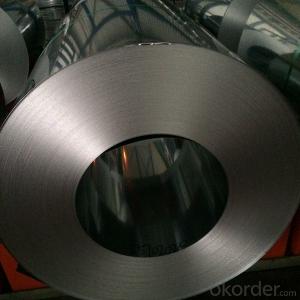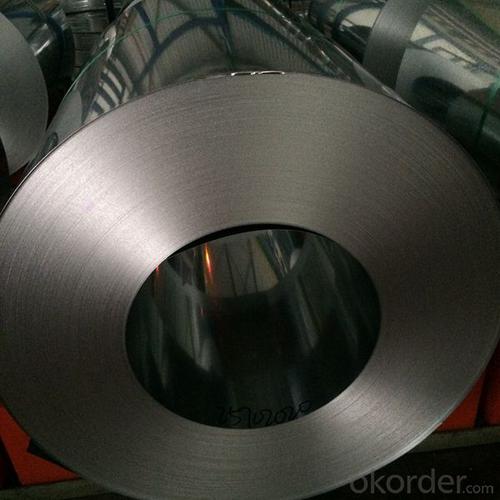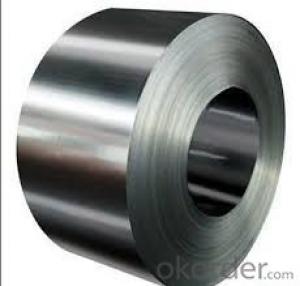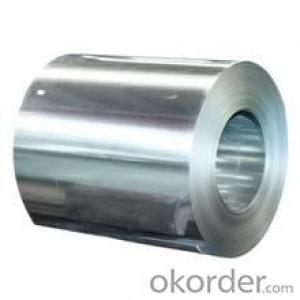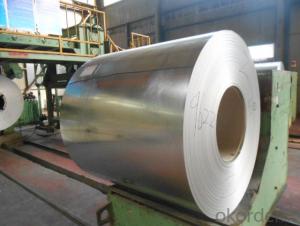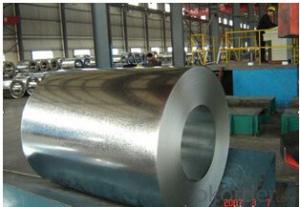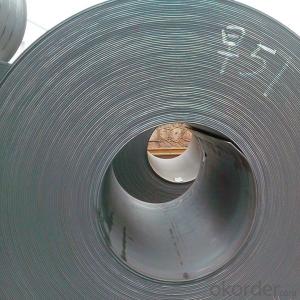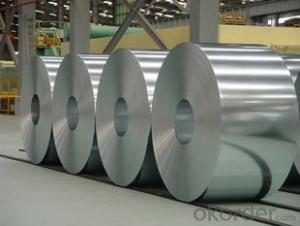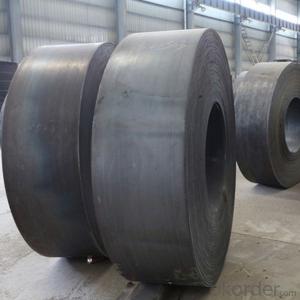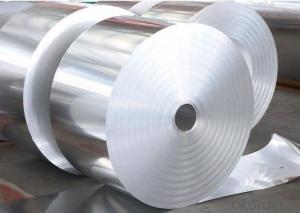Top Price Hot Rolled Galvanized Steel Coils Made in China No Spangle
- Loading Port:
- Tianjin
- Payment Terms:
- TT OR LC
- Min Order Qty:
- 50 m.t.
- Supply Capability:
- 100000 m.t./month
OKorder Service Pledge
OKorder Financial Service
You Might Also Like
Specification
DESCRIPTION FOR GALVANIZED STEEL COILS:
1) Size: 0.30-2.0mm x 1,000-1,500mm x C
2) Zinc coating: 80-275g/m2;
3) Spangle: regular, zero and minimized
4) Material: we can supply different qualities according to several standards,
such as:
a) SGCC, SGCD, SGCE according to JIS G3302
b) DX51D+Z, DX52D+Z, DX53D+Z, DX54D+Z to EN 10142
EXPORT STANDARD FOR GALVANIZED STEEL COILS:
-Axial and circumferential steel straps with seal (4 steel straps each)
-VCI Anti-rust kraft paper
-Water-proofing plastic
-Pearl wool (coil surface)
-Steel cover (coil surface/bore)
-Plastic cover (coil sides)
-Inside and outside corner protectors
Or According customers' requirements(Usually only for domestic)
RAW MATERIALS FOR GALVANIZED STEEL COILS:
(1)Hot dipped galvanized steel sheet
(2)color coated galvanized steel sheet
(3)Galvalume steel sheet
(4)Prepainted galvalume steel sheet
(5)Aluminum sheet
(6) Prepainted aluminum sheet
(7)Stainless steel sheet
PACKAGING &DELIVERY FOR GALVANIZED STEEL COILS:
Packaging Detail Standard export packing or following customer's demand
Delivery Time: Within 30-40 days after deposit or according to the order quantity
TRADE TERMS FOR GALVANIZED STEEL COILS:FOB, CFR, CIF
DETAILED PICTURES FOR GALVANIZED STEEL COILS:
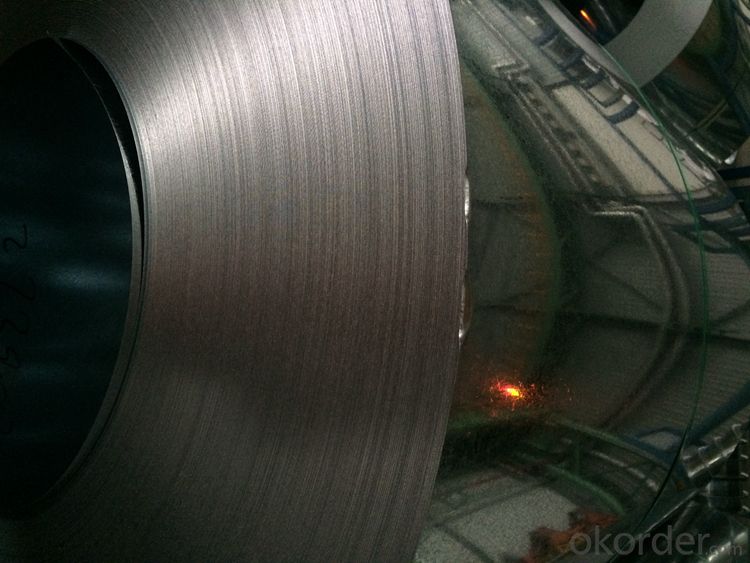
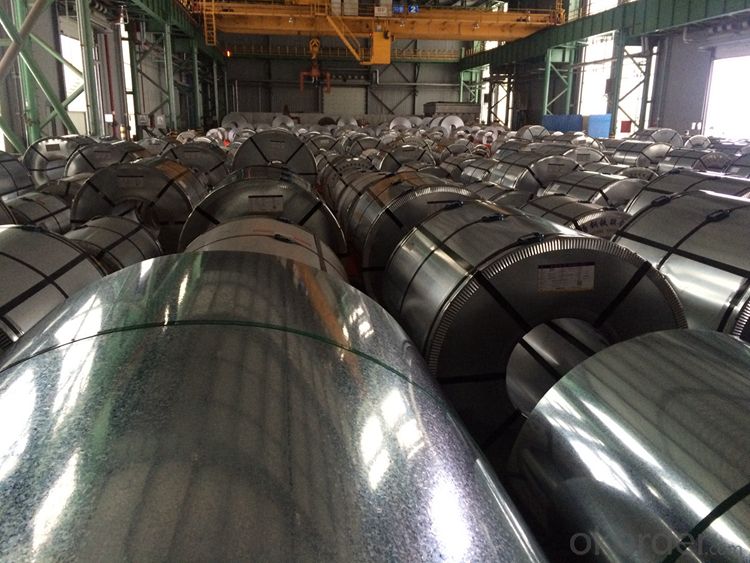
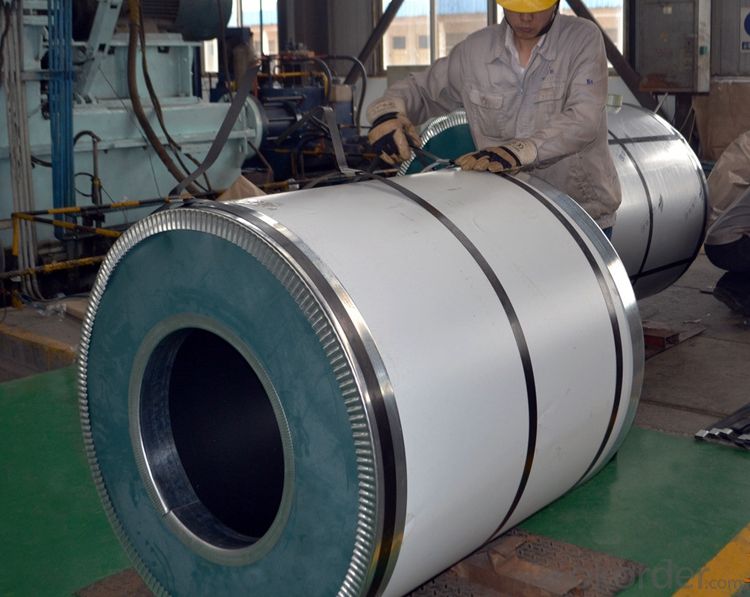
APPLICATION FOR GALVANIZED STEEL COILS:
Guardrails, ventilation ducts, gutters and down spouts, Pre-paint and post paint applications, gutters and ceiling suspension bars, shutter door rails. Auto parts, electrical appliances, refrigerator appliances, signs, automotive parts,vending machines, washing machines, showcases and other structural use, roofing, commercial use.
FAQ FOR GALVANIZED STEEL COILS:
Q:How about the delivery time?
A:Within 15-30days after receiving the deposit or L/C at sight.
FAQ FOR GALVANIZED STEEL COILS:
Q:How about the trade terms?
A:EXW,FOB,CFR,CIF will be accepted.
- Q: How are steel coils protected against scratches and damage?
- To protect steel coils from scratches and damage, various methods are utilized. One widely used approach involves applying a protective coating or film to the surface of the coils. This coating acts as a barrier, preventing direct contact between the steel and potential sources of harm. It may consist of materials like polyethylene, PVC, or other abrasion and impact-resistant plastics. Moreover, steel coils are frequently wrapped or packaged using materials such as paper, cardboard, or plastic. This wrapping provides an additional layer of defense during storage, transportation, and handling. The wrapping material acts as a cushion, absorbing any potential impacts or friction that could cause scratches. Furthermore, special containers or pallets with protective features are employed to minimize the risk of damage to steel coils. These containers or pallets may have padded interiors, secure fastenings, or dividers that keep the coils in place and prevent them from rubbing against each other. In certain situations, steel coils are stored or transported in controlled environments to minimize damage. This may involve temperature-controlled warehouses or shipping containers that prevent the formation of moisture, which can lead to corrosion or other types of harm. Overall, a combination of protective coatings, wrapping materials, specialized containers, and controlled environments is utilized to ensure the adequate protection of steel coils against scratches and damage throughout their lifecycle.
- Q: How are steel coils stored?
- Steel coils are typically stored in warehouses or outdoor yards. They are usually stacked on top of each other, either horizontally or vertically, with wooden or steel dunnage to prevent damage and ensure stability. Coils may also be stored on specialized racks or on coil cradles. Proper spacing and organization are crucial to facilitate easy access, minimize the risk of damage, and ensure efficient inventory management.
- Q: explain what happen if carbon steel is exposed to an oxygen rich atmosphere at elevated temperature inside a furnace.
- Blowing oxygen or air rich in oxygen through molten carbon steel is a way of lowering the carbon content. The properties of carbon steel depend very much on the carbon content . too much and it is very brittle. It is all governed by a complex phase diagram. If the steel isn't actually melted, then only insignificant effects at the surface will occur.
- Q: What is the size range of steel coils?
- The size of steel coils can vary depending on the specific application and industry, offering a wide range of options. Steel coils are available in various sizes to meet different needs. The width of steel coils can range from a few inches to several feet, accommodating different requirements. Similarly, the thickness of steel coils can vary from very thin gauges, like 0.005 inches, to thicker gauges that exceed 0.5 inches. The length of steel coils is typically determined by the manufacturing process, but it can be customized to meet specific demands. In general, the size range of steel coils is extensive, providing flexibility and adaptability in industries like automotive, construction, and manufacturing.
- Q: Are steel coils used in furniture manufacturing?
- Yes, steel coils are commonly used in furniture manufacturing. They are often used as a supportive framework in upholstered furniture, such as sofas and chairs, providing stability and durability to the overall structure.
- Q: How are steel coils stored in warehouses?
- Steel coils are typically stored in warehouses by stacking them horizontally on top of each other, often using specialized racks or shelves designed to support their weight. Coils are usually aligned in rows with adequate space between each stack to allow for easy access and movement of the coils. Additionally, some warehouses may use protective materials, such as wooden or plastic spacers, to prevent scratching or damage to the coils during storage.
- Q: How are steel coils stored to prevent damage?
- Steel coils are typically stored in a way that minimizes the risk of damage. They are usually placed on pallets or in racks to keep them off the ground and provide stability. Additionally, they are often secured with bands or straps to prevent movement during storage and transportation. Proper ventilation is also important to prevent moisture buildup, which can cause corrosion. By implementing these measures, the risk of damage to steel coils is significantly reduced.
- Q: What are the common coil storage methods?
- The common coil storage methods include stacking in a vertical or horizontal position, using coil cradles or racks, and utilizing coil drums or shafts for secure storage.
- Q: What is the process of recoiling steel coils?
- The process of recoiling steel coils involves rewinding or unrolling large steel coils to create smaller, more manageable coils. This process is typically carried out in steel processing plants or coil service centers. The first step in the recoiling process is to identify the appropriate coil to be recoiled. This selection is based on factors such as coil size, weight, and quality. Once the coil is chosen, it is placed onto a recoiling machine, which is equipped with various mechanisms to facilitate the recoiling process. The recoiling machine consists of a mandrel or drum, around which the coil is wound or unwound. The coil is secured onto the mandrel, either by mechanical clamps or hydraulic pressure, to ensure it remains stable during the recoiling process. In the case of rewinding or recoiling a large coil into smaller coils, the machine starts by unwinding the original coil. This is done by rotating the mandrel in the opposite direction, causing the coil to gradually unroll. As the coil unwinds, it passes through various straightening and flattening mechanisms, which help to ensure the coils are produced with consistent dimensions and quality. Once the original coil is completely unwound, the machine starts the rewinding process. The smaller coils are created by winding the steel strip onto the mandrel in a controlled manner. The speed and tension of the rewinding process are carefully regulated to prevent any damage to the steel strip. During the recoiling process, various quality control measures are implemented to ensure the produced coils meet the desired specifications. These may include monitoring the thickness, width, and surface quality of the steel strip, as well as conducting periodic inspections to detect any defects or irregularities. Once the rewinding process is completed, the smaller coils are typically removed from the mandrel and prepared for further processing or shipment. This may involve applying protective coatings, labeling, or packaging the coils, depending on their intended use. In summary, the process of recoiling steel coils involves unwinding large coils, straightening and flattening the steel strip, and rewinding it onto a mandrel to create smaller, more manageable coils. This process requires specialized machinery and careful control to ensure the quality and consistency of the recoiled coils.
- Q: Is infi steel as good as busse knives make it sound. If so why don't any other brands use it. Also are there any tactical folders that use infi steel. If infi isn't as good as it's cracked up to be then what is the best alternative.
- Infi Steel Knives
Send your message to us
Top Price Hot Rolled Galvanized Steel Coils Made in China No Spangle
- Loading Port:
- Tianjin
- Payment Terms:
- TT OR LC
- Min Order Qty:
- 50 m.t.
- Supply Capability:
- 100000 m.t./month
OKorder Service Pledge
OKorder Financial Service
Similar products
Hot products
Hot Searches
Related keywords
